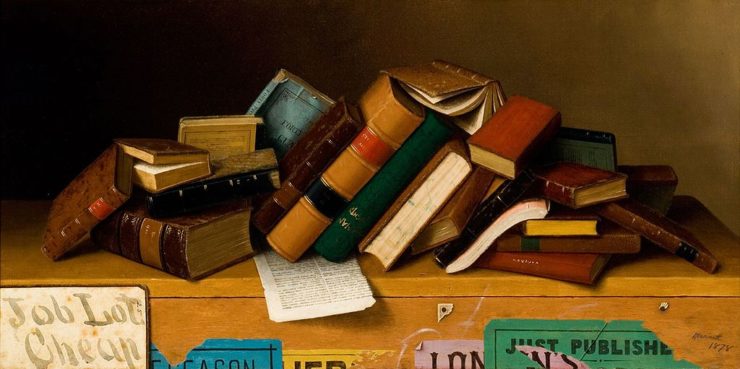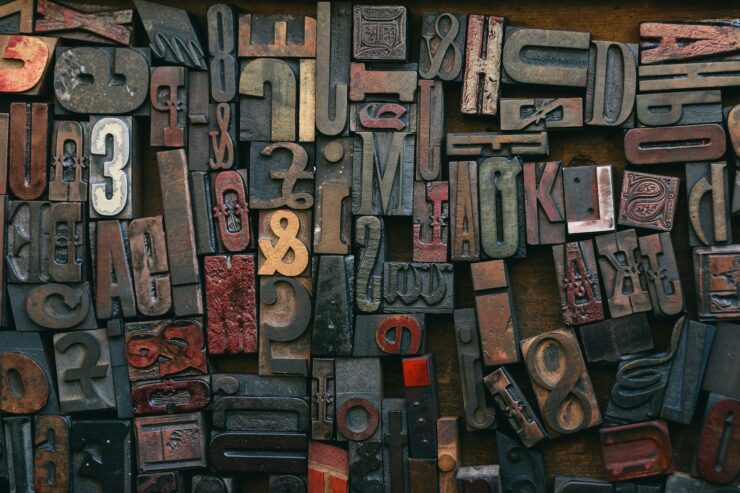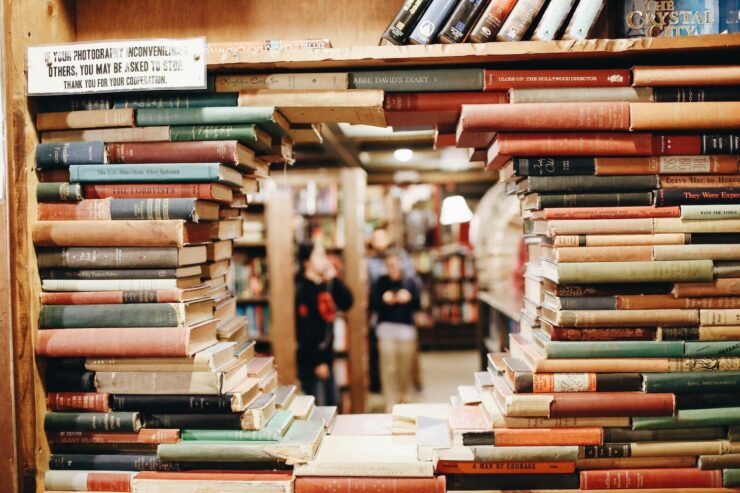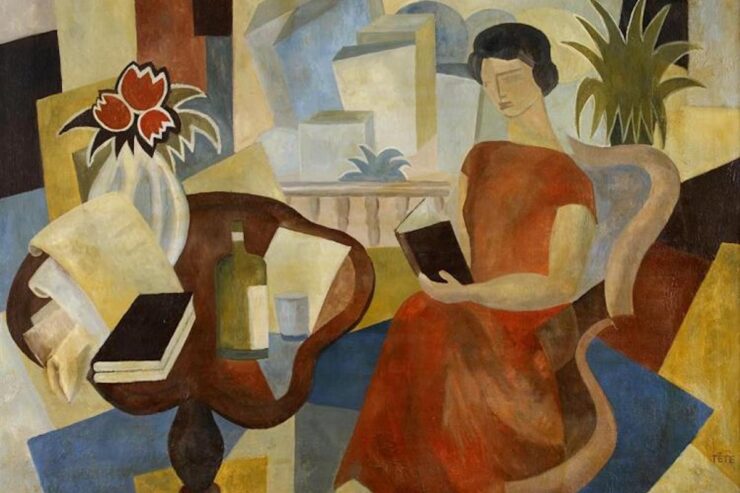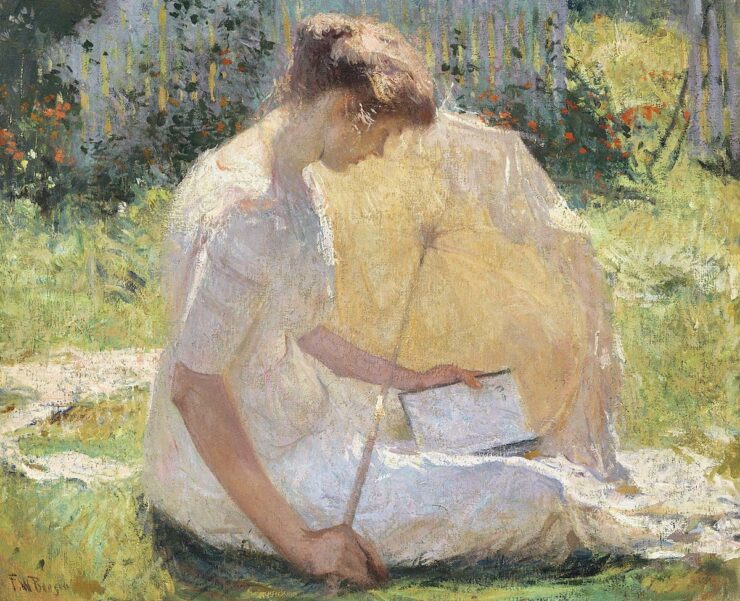You’ve turned the last page of your book. Maybe you read the acknowledgements, the author bio, reread the blurbs on the back now that you have more context for them. Maybe you let it fall heavily on your coffee table and sigh a satisfied (or infuriated, or disappointed, or giddy) sigh. Maybe you immediately return the ebook in your library app, or add it to a stack of books by the door to take back to the library or put on a free book shelf. Maybe you enjoy the particular sensation of finding the book its new home on your shelves, giggling a little if it lives in between two particularly unlikely neighbors.
Whatever your end-of-book rituals, if you’re a regular reader, you’ll eventually arrive at one question:
What do I read next?
And sometimes, this choice feels impossible.
Ok, yes, I’m being a little dramatic. Choosing what book to read next isn’t difficult, exactly. In a very real way it can be a privilege, whether you’re choosing from a virtually endless supply of books online (whether to check out from the library or buy or download a free classic) or an overflowing TBR shelf/stack/bookcase/room-eating pile. Many of us are spoiled for choice. It’s not a problem, but it is a real question: How can I pick one books when I want to read everything, absolutely everything, all at once?
Occasionally the choice is clear. Maybe a long-awaited sequel has finally arrived. (Maybe it’s time to re-read all the previous books in a series before the long-awaited sequel arrives.) Maybe the hold you’ve been waiting on for three months finally comes up at the library. Maybe this week, a new book came out and you absolutely 100% are going to start reading it the minute you get home from the store with it.
It’s been a while since this last one happened to me, but not for lack of enthusiasm. For some time, there’s been a distinct lack of trips to the bookstore, but that hasn’t stopped me from ordering books. They arrive, and I love their shiny little book faces, and I think about reading them next, and then I feel guilty about the books I got last time I ordered books and how I haven’t read them yet, and the next thing you know I’ve picked up the Switch again; in Breath of the Wild, Link only reads books to pick up some hot gossip about side quests, and I’ve got a couple of those left to find.
Like I said: Not a real problem. But sometimes it’s good to have a way to shortcut the part of one’s brain that absolutely does not want to deal with making yet another decision in a day that’s been full of them, or a brain that is threatening tears if it can’t read at least three new books at once. I’ve heard a lot of approaches over the years, and tried a few of my own. Did they work? Well. I’ll get to that.
Some tactics you might try:
The classic switch: A new book and then an old one. (Your choice whether “old” means “been on the pile more than X amount of time” or “published some years ago.”) Or a paperback and then a hardcover. A standby of those of us who don’t want to feel we’re behind on what’s new and being discussed online, but also want to keep up with the things we’ve always meant to read. I’m always tempted by this kind of mental organization. Maybe up next I’ll read Matt Bell’s Appleseed followed by Sofia Samatar’s The Winged Histories, or Helen Oyeyemi’s Peaces followed by Terry Pratchett’s Mort.
The extreme switch: A variation on new/old, but slightly more extreme: Read the oldest book on your shelf or list or pile, then the newest, and make your way inwards from there. Presumably this would lead to some fascinating changes in pace and tone and topic.
The reading schedule: You make a list of what you’re going to read next, for X number of books, and you stick to it. Those who can do this have wills of steel. I can’t do it. Something might come up! I might see something I’d forgotten about buried at the bottom of a pile! It may turn out that the books I planned to read just plain don’t go well one after another!
I’ve heard tell of this being successful but have never witnessed it myself.
The genre hopper: A basic rule: never read two books of the same genre in a row. If you want to get tricksy with it, you can try to make the books follow after one another in some thematic way. If you want to put less thought into it, you just read something not SFF after an SFF book, something fiction after nonfiction. If you get very ambitious and sort your TBR by genre, it simplifies things even further. (You can also use this sorting task to further put off having to make a decision about which book to open next.)
The randomizer: Close your eyes and jab your finger at the pile/your screen, and pick based on where it lands. Personally I find this is a very good way to determine what I don’t want to read next, as it’s almost never the book on which my jabbing finger lands. Your mileage may vary. (A variant on this: Read whatever the library hold system brings up, in the order they arrive. This is very good for those times when you just really, really don’t want to make any decisions.)
A sense of obligation: Did your friend give you a book some years back that you haven’t read? Did you pick up a novel because someone you work with recommended it? It’s never too late to actually read those books and then send the person who gave/told you about them a note about it. If you’d been feeling a little guilty, here is a simple means of relief. If you don’t like the book in question, you can opt never to say a word and just enjoy that there is one less book on your shelf.
Plain old curiosity: If you have a burning desire to read that one really popular book that would usually not be your cup of tea, but everyone is talking about it and you just want to know what the deal is? Do it now. They won’t be talking about it forever, and if you miss that window, you’re just going to look at that book later and wonder why you thought you wanted to read it.
Let someone else decide for you: It is very likely that your friendly local bookseller lives for those moments when someone says “I don’t know what I want to read next.” If your local store is open, go in (masked!) and ask; if not, email them! They’ll probably ask what you usually like to read, what you liked best about those books, whether you’re feeling fiction or non, and what you’re in the mood for. And then they will work some magic.
All of these tactics are well and good and can be useful, but I don’t use any of them very often, This isn’t because I’m a very decisive person (I most certainly am not), but because not one of them can account for the nebulous, often indescribable, hard to pin down factors that account for so much of my book choosing: how I feel, and how I want to feel.
A book can be comfort or horror, romance or spite, anger, delight, hope, despair, dreaminess, practicality, optimism, and all of those mashed-up feelings that don’t sum up neatly into a single word. Feelings can be the hardest thing to get from a book’s back cover copy or blurbs or reviews, which tend to lean on plot and succinct praise—and even if the text says it’ll make you cry or miss your grandma or want to go save the world single-handedly, there’s no guarantee that’s true for you like it was for whoever made those claims. The alchemy is precise and individual, and unpredictable to boot.
And then there’s the other challenge: knowing your own feelings. Sometimes that’s the hardest part. I stand in front of the bookshelves, or look over my “to-read” tags in the library app, and I simply have no idea what it is I want. I want something. I want a specific feeling, something as exact as the word petrichor or the shape of a trillium, but there’s no word for it, no genre equivalent, no cover design style that can tell me if it’s in a given book.
Do I want to hang out with a protagonist who drives me delightfully up the wall or one who I want to be friends with? If I read a book about a successful author, am I in a place where I’ll feel inspired, or envious? Do I want the comfort of the familiar or the delight of something entirely new? Do I want to be challenged or cushioned? What do I want to learn? Where am I, right now, and where will the book meet me—or take me?
Sometimes it’s easy. In the chaos of last year, N.K. Jemisin’s The City We Became was exactly what I wanted to read while I was worrying about friends in New York and the city as a whole. Mona Awad’s Bunny let me transform all the biting, nasty feelings I didn’t know what to do with. I spent New Year’s Day reading Suzanna Clarke’s Piranesi, which was the perfect book to have as company while walking into an uncertain year.
But when choosing is hard, it doesn’t help to force it. Take all the time you want. Read the first ten pages of a dozen books. Stack five options up in a pile and try to convince yourself to start the one on top; if it’s not right, move on, until you’ve found what you want. Distract yourself for a while with all those bookmarked articles you’ve been meaning to get around to. Allow for the process.
Or just pick from a list or pull a book off the shelf at random. Totally up to you.
Molly Templeton lives and writes in Oregon, and spends as much time as possible in the woods. Sometimes she talks about books on Twitter.










